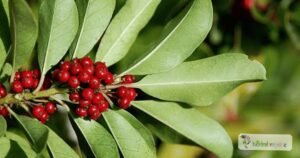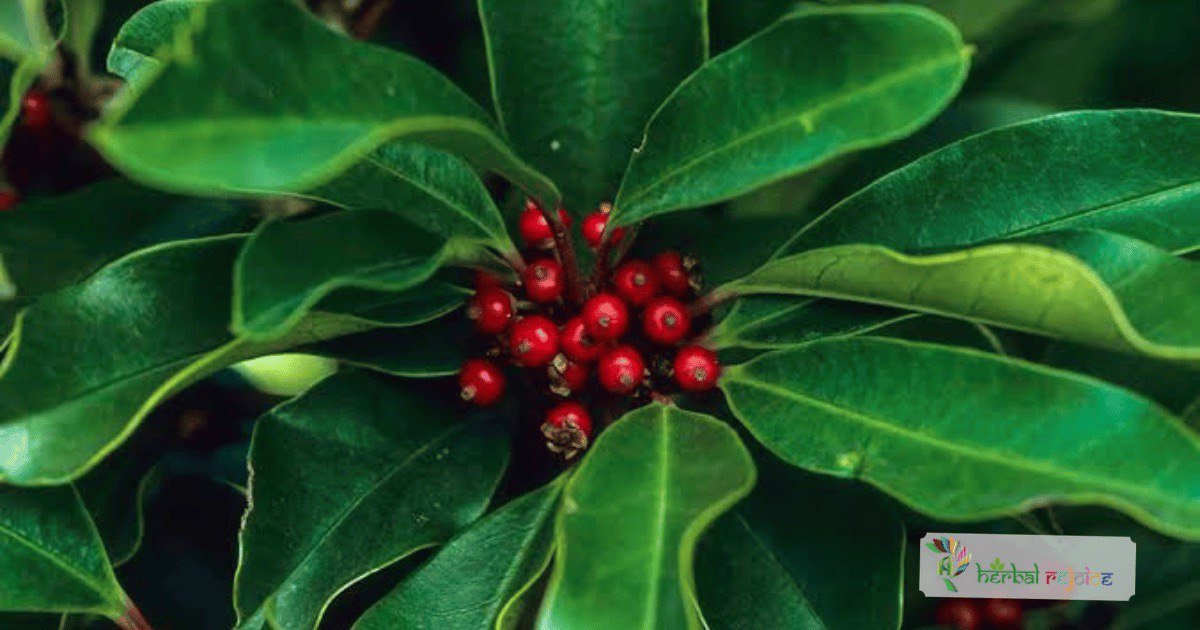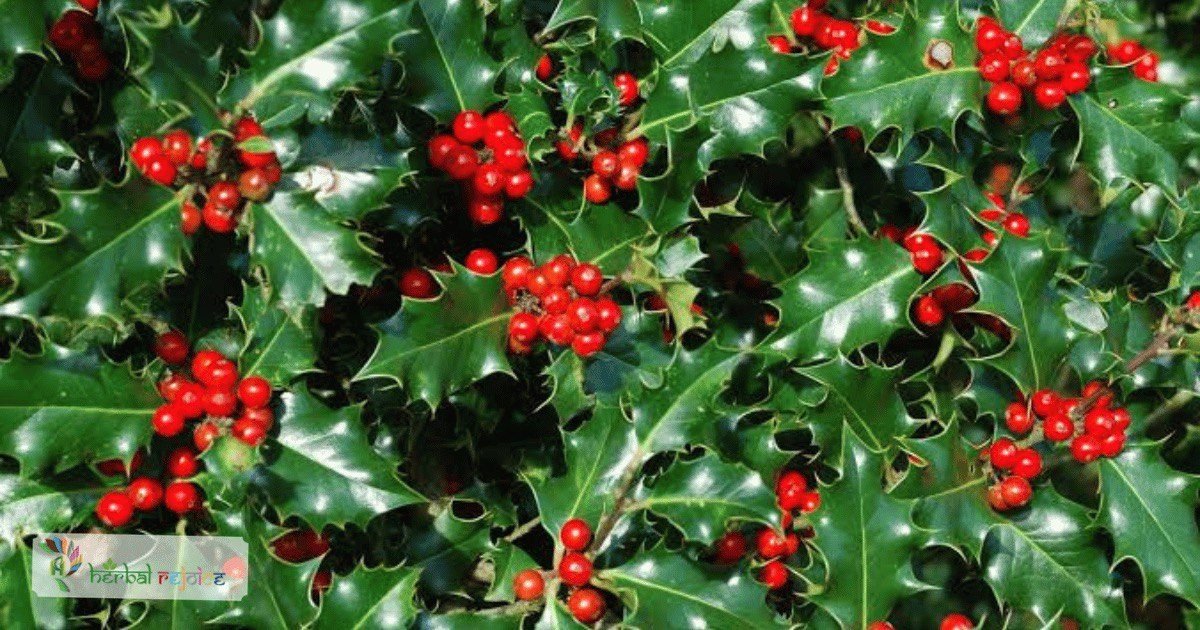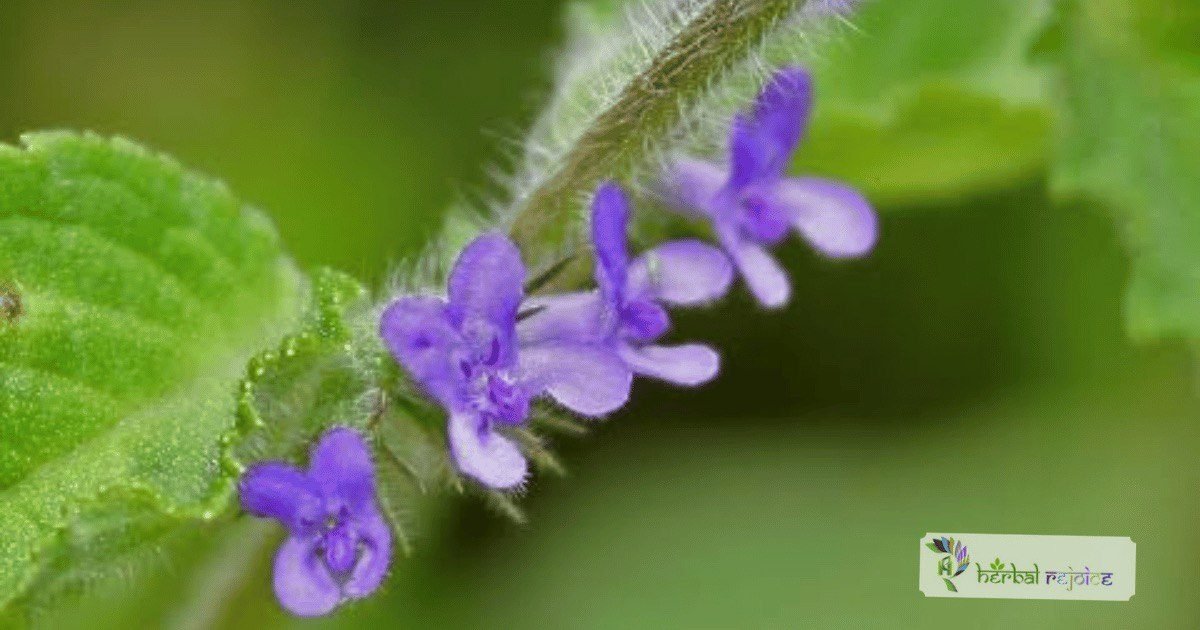Introduction
Ilex paraguariensis, also known as Mate Tea or Yerba Mate, is a plant native to South America and is cultivated in some Indian gardens. It is commonly grown in Lucknow, a city in northern India. This plant belongs to the Aquifoliaceae family. Mate Tea (Ilex paraguariensis St.-Hil) is often used to treat physical exhaustion, rheumatism, gout, and nervous headaches.

Health Benefits Of Mate Tea
Mate Tea, also known as Yerba Mate or Paraguay Tea, has various health benefits. It acts as a stimulant to the brain and nervous system, and also has mild antispasmodic properties.
Additionally, it helps eliminate uric acid from the body. Due to these properties, Mate Tea is often used to treat physical exhaustion, rheumatism, gout, and nervous headaches.
In fact, it is considered a national drink in Paraguay and Brazil. However, it should be noted that consuming large doses of Mate Tea can cause purging and even vomiting.
Key Applications of Mate Tea
One key application of Mate Tea is in treating physical and mental fatigue. This has been supported by the German Commission E and the World Health Organization (WHO).
It has also been found to be effective in treating nervous depression, psychogenic headaches (especially those caused by fatigue), and rheumatic pains, according to The British Herbal Pharmacopoeia.
The German Commission E has reported that Mate Tea has analeptic, positively inotropic, positively chronotropic, glycogenolytic, lipolytic, and diuretic properties.
Chemical Constituents of Mate Tea
The leaves of Ilex paraguariensis St.-Hil contain various compounds, including xanthine derivatives such as caffeine (0.2–2%), theobromine (0.3–0.5%), and sometimes theophylline (absent in some samples).
The leaves also contain polyphenolics, tannins, chlorogenic acid, vanillin, vitamin C, and volatile oil. Due to its caffeine and theobromine content, Mate Tea is often consumed in a similar way as regular tea. In fact, it is a popular tea in several South American countries.
Antimicrobial activity of Mate Tea
In addition to its use as a beverage, Mate Tea has been found to have moderate to weak broad-spectrum antimicrobial activity against several Gram-positive bacteria. Some of its components are bactericidal, particularly against Streptococcus mutans, which is one of the most carcinogenic bacteria.
Conclusion
In conclusion, Ilex paraguariensis St.-Hil, also known as Mate Tea or Yerba Mate, is a plant with various health benefits. It acts as a stimulant to the brain and nervous system, helps eliminate uric acid, and has mild antispasmodic properties.
It is commonly used to treat physical exhaustion, rheumatism, gout, and nervous headaches. Mate Tea also has properties that help combat physical and mental fatigue.
Its leaves contain several beneficial compounds, including caffeine, theobromine, polyphenolics, tannins, chlorogenic acid, vanillin, vitamin C, and volatile oil. It is commonly consumed in several South American countries and has moderate antimicrobial activity against certain bacteria.
Frequently Asked Questions
What is Ilex paraguariensis?
Ilex paraguariensis, also known as Mate Tea or Yerba Mate, is a plant native to South America and is cultivated in some Indian gardens.
What are some of the health benefits of Mate Tea?
Mate Tea acts as a stimulant to the brain and nervous system, helps eliminate uric acid from the body, and has mild antispasmodic properties.
Can Mate Tea be used to treat physical exhaustion?
Yes, Mate Tea is often used to treat physical exhaustion due to its stimulating properties.
How does Mate Tea benefit individuals with rheumatism?
Mate Tea has anti-inflammatory properties which can help with rheumatism.
Is Mate Tea effective for treating gout?
Yes, Mate Tea has been found to be effective in the treatment of gout.
How does Mate Tea help with nervous headaches?
Mate Tea has mild antispasmodic properties which can help relieve nervous headaches.
Which countries consider Mate Tea a national drink?
Mate Tea is considered a national drink in Paraguay and Brazil.
What are the possible side effects of consuming large doses of Mate Tea?
Consuming large doses of Mate Tea can cause purging and vomiting.
Is Mate Tea recommended for treating nervous depression?
Yes, Mate Tea has been found to be effective in treating nervous depression.
Does Mate Tea have any diuretic properties?
Yes, Mate Tea has diuretic properties.
What compounds are found in the leaves of Mate Tea ?
The leaves of Mate Tea contain xanthine derivatives such as caffeine, theobromine, and sometimes theophylline.
How is Mate Tea commonly consumed?
Mate Tea is commonly consumed in a similar way to regular tea.
What other components are found in the leaves of Mate Tea?
The leaves of Mate Tea also contain polyphenolics, tannins, chlorogenic acid, vanillin, vitamin C, and volatile oil.
Does Mate Tea have antimicrobial activity?
Yes, Mate Tea has moderate to weak broad-spectrum antimicrobial activity against several Gram-positive bacteria.
Is Mate Tea effective against Streptococcus mutans?
Yes, Mate Tea has been found to be bactericidal against Streptococcus mutans.
Can Mate Tea be used as a substitute for regular tea?
Yes, Mate Tea is often consumed as a substitute for regular tea.
How does Mate Tea help combat physical and mental fatigue?
Mate Tea has analeptic, positively inotropic, positively chronotropic, glycogenolytic, lipolytic, and diuretic properties which help combat physical and mental fatigue.
Does Mate Tea contain caffeine?
Yes, Mate Tea contains caffeine.
What are the potential health benefits of theobromine found in Mate Tea?
Theobromine found in Mate Tea can act as a mild stimulant and help improve mood.
Can Mate Tea be beneficial for individuals with high uric acid levels?
Yes, Mate Tea can help eliminate uric acid from the body, making it beneficial for individuals with high uric acid levels.





